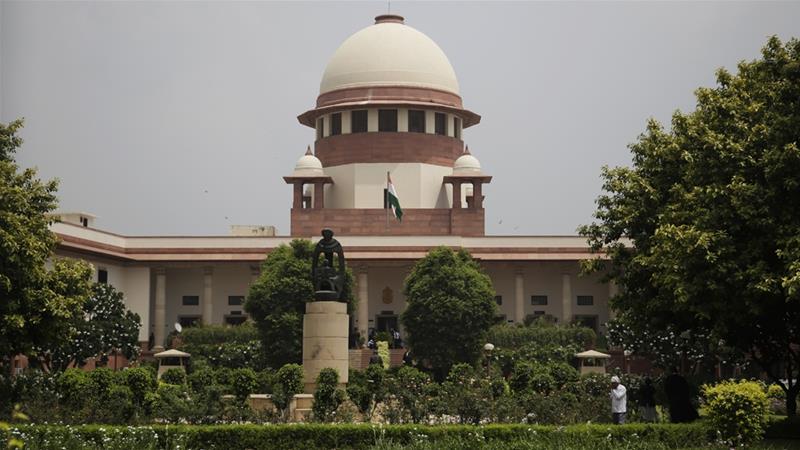India’s Supreme Court allows “passive euthanasia”
AlJazeera News, March 9, 2018
Ruling
says citizens can draft living will refusing treatment in case of coma or
terminal illness.
 |
| The court says individuals are only allowed to draft a living will while in "normal state of health and mind" [AP] |
India's
Supreme Court has issued a landmark ruling allowing "passive
euthanasia", declaring that individuals have the right to die with dignity
under strict guidelines.
In its
decision on Friday, the country's highest court permitted its citizens to draft
a "living will" that specifies that life support not be given in the
case of coma.
Passive
euthanasia allows the withdrawal of medical treatment with the intention to
hasten the death of a terminally-ill patien
t.
The
five-member court, however, said that individuals are only allowed to draft a
living will while he or she is in "normal state of health and mind",
the Hindustan Times reported.
The
decision was in response to a petition by a non-government organisation, which
argued that a person with terminal illness should be given the right to refuse
being placed on life support.
"A
person cannot be forced to live on support of ventilator. Keeping a patient
alive by artificial means against his/her wishes is an assault on his/her
body," the petitioner Common Cause said.
"Clear
the confusion"
Prashant
Bhushan, the attorney representing Common Cause, said the ruling "will
clear the confusion and avoid the sword that keeps hanging [over the head of]
the doctors and family that if they want to withdraw life support they might be
prosecuted for culpable homicide".
He added:
"If a person's condition is incurable and if he is kept alive as a
vegetable in great pain, why should he live like that?"
Harmala
Gupta, a cancer survivor and social activist who works for cancer support
services, welcomed the ruling.
"This
is indeed a landmark judgement as it allows those dying to leave with dignity
as well as respects their wishes," Gupta, founder of CanSupport, told Al
Jazeera.
"It
will legalise what is already happening in India under the guise of "left
against medical advice".
Minakshi
Biswas, research scholar and expert on euthanasia, said however that there are
many factors to be considered before allowing passive euthanasia.
"Allowing
passive euthanasia in developed countries is probably feasible, but welcoming
even passive euthanasia in countries like India is very difficult,"
Biswas, a humanities professor at GD Goenka University in Delhi, told Al
Jazeera.
She said
India does not have even the basic healthcare services in place, and funds for
health sector in the government budget is inadequate.
"That
means many Indians who can't afford healthcare will be pushed to opt for this
choice," she said.
"It's
a different issue for patients who are seriously ill. However even there, the
caregiver is taking the decision. For instance an elderly couple in Mumbai wrote
to the Indian president recently asking for permission for active euthanasia-
the concern even in this case is-- are they choosing this because they have no
care system in place?"


